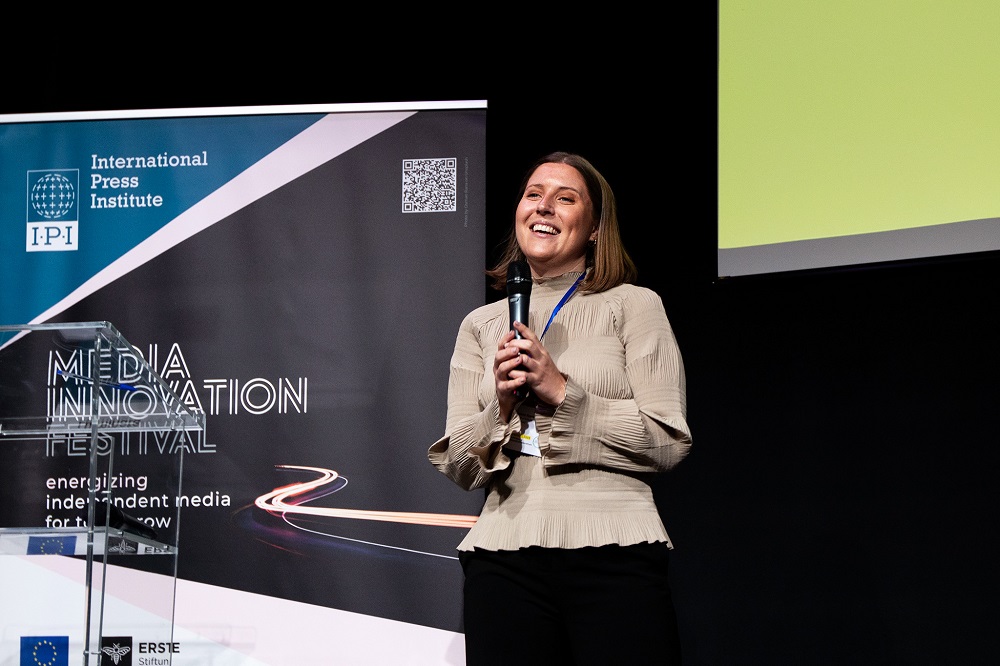Hype over the recent explosion of AI has been equally matched with concerns over what the new technology will mean for the future of journalism. Despite the challenges AI presents, it offers key opportunities to revolutionize the journalism industry, panelists at the 2023 IPI World Congress and Media Innovation Festival at the end of May said.
AI has and will continue to impact journalism at every level: from newsgathering to content production, to marketing and distribution. Given the rapid pace of technological advance, how can journalists, in the words of IPI’s Jacqui Park, “move fast, without breaking things”? The key, emphasized by panelists Charlie Beckett and Agnes Stenbom, is making AI work for journalism.
Charlie Beckett, a professor at the London School of Economics, said that the technical advances in generative AI represent a “giant leap”. Having personally witnessed the effects of technological advances over his 25-year journalism career, Beckett realized some years ago that AI was here to stay. His interest in machine learning led him to start the JournalismAI project at Polis, LSE’s international journalism think-tank, with the goal of filling the AI knowledge gap through online courses and fellowships that train journalists to implement new technologies in their own newsrooms. Collaboration became the defining feature of the program: many fellows bring their own unique challenges, which they solve with the help of other fellows. “We didn’t really plan it, it evolved organically,” Beckett noted.
Agnes Stenbom, a PhD candidate at KTH Royal Institute of Technology and head of IN/LAB, based in Sweden, employs a similar style of collaboration in her efforts to engage what she calls “news outsiders” — people who avoid the news due to a lack of interest or its mental health effects. Using “co-creation processes,” IN/LAB works with news outsiders to prototype AI-based solutions to make the news more inclusive, for example, through “news therapists,” or musical adaptations of news stories. “We need to step outside the current newsroom and work together with people who have different information, needs and desires,” Stenbom stressed.
Despite the potential applications of AI for journalistic work, many continue to harbor concerns about being left behind. “There’s a kind of organized panic going on,” Beckett said, acknowledging that there will be a degree of job loss associated with AI. Yet, Beckett argued, AI will also lead to job creation for those savvy enough to keep up. “We always exaggerate the short-term impacts of these technologies, and in many ways underestimate the longer-term impacts,” he said.
While there are still more unknowns than knowns when it comes to AI, both speakers agreed that we are living through a critical moment in journalism. The bottom line? Journalism will remain a human-centered enterprise. In Beckett’s words: “[AI] is purely a language machine; it is not a truth machine. Only humans have an understanding, a philosophical, political, and personal understanding, of what the truth is.” Echoing these sentiments, Stenbom argued that human imagination is irreplaceable: “AI will operate in whatever boxes we put it in…it’s very much a human, empathic process of figuring out what the future boxes for journalism should be.”
Revisit the IPI World Congress & Media Innovation Festival 2023